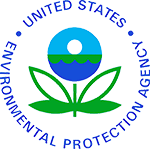At the scorching peak of summer, when your family is wilting, your pets are listless, and the memory of cool relief seems distant, the last thing you want is an underperforming air conditioner. You’ve turned the knob to full blast, but one familiar, longing coolness hasn’t kicked in. The vents, once sources of sweet relief, now seem to mock you, appearing to be mere ornaments. Could it be an electrical malfunction, a pressure issue, or even a leak?
What’s going wrong? Could there be an issue inside the intricate network of air ducts in your HVAC system, or perhaps there’s a problem in the unseen parts tucked away in your attic? Identifying the true causes and knowing how to appropriately repair them is crucial.
Many factors could be behind your air conditioner’s underperformance. From
clogged filters to insufficient refrigerant, faulty thermostats to sun-drenched rooms, a multitude of issues might prevent your home from cooling down. Even obstructions in your home’s ducts, poor insulation, or a failing condenser may be the root reason for your discomfort.
This comprehensive guide will help you understand why your air conditioner might not be cooling your home sufficiently and what you can do about it. Our aim is to equip you with the knowledge to identify whether it’s a minor task like filter cleaning, or a more significant repair job, like dealing with electrical part replacements.
Why is AC not Cooling?
Your air conditioner failing to properly cool your home can indeed pose a serious problem, particularly in hotter climates. Standing there, flipping switches and hoping for a cool breeze, you may find yourself considering humidifiers in Las Vegas to combat dryness, but an underperforming AC can also be attributed to several issues. Each component of your HVAC system plays a critical role in its overall function and must be properly maintained.
An AC not cooling the home effectively can stem from incorrect settings, leaks, mechanical or electrical malfunctions, or even inadequate maintenance. Let’s delve into the possible culprits behind such predicament.
The Filters are Clogged
In the labyrinth of your HVAC system, a clogged filter can often be the primary cause of your air conditioner’s underperformance. These filters trap dust, pollen and other particulates as your AC system circulates air through your home’s ducts. A simple, remedial way to address this issue is to inspect, clean, or replace these filters.
The Refrigerant is Leaking or Low
The
refrigerant in your AC system is a vital ingredient in producing a cool home. It absorbs heat from the indoor air and releases it outside. If there’s a leak or the refrigerant levels are low, your AC can lose its cooling efficiency. Signs of refrigerant issues may include ice build-up on the coils or a hissing sound. Approach a professional to inspect and recharge the system because handling refrigerant calls for specialized knowledge and equipment.
The Coils are Frozen or Dirty
Much like filters, the coils in your AC system can also experience a buildup of dirt over time. When this happens, they lose their efficiency to absorb heat and can’t cool the air effectively, especially if the coils freeze.
Regular cleaning and maintenance are necessary to keep this integral component of the HVAC system in optimal working condition.
There’s Leaking Air
Leaks in the insulated ductwork of your AC system – potentially even in the attic – can lead to loss of cooled air before it reaches your living spaces. This is a common reason why your home AC isn’t cooling effectively.
The Compressor is not Running
The compressor, or the ‘heart’ of your AC system, circulates the refrigerant and aids in heat removal. A malfunction could come from numerous parts, such as a blown fuse, a defective capacitor, or a faulty motor.
Exterior Fan Motor Could Be the Culprit
Finally, the exterior fan, which is responsible for transferring indoor heat to outside, should be in proper working condition to achieve efficient cooling. Regular inspection and repair can help detect and resolve potential fan issues before they escalate further.
Check the Thermostat
Sometimes the problem is not with the actual AC units, but with the thermostat—a critical component of the entire system. A multitude of reasons, varying from a simple refrigerant leak to more complex internal issues, can cause a malfunctioning thermostat. If the thermostat’s calibration isn’t spot on, your AC won’t get the right instructions, causing ineffective cooling. Armed with this knowledge, you can now approach AC problems with a better idea of where to look for solutions.Regularly inspect your air conditioning system for signs of problems, such as a need for battery replacement or a malfunctioning condenser coil, and replace the batteries or any other faulty parts if necessary. Addressing these issues promptly helps maintain appropriate humidity levels within your home, which is essential for the health of both inhabitants and indoor plants.
The Registers Are Dirty or Blocked
Another common issue that might hinder your cooling process is if your air conditioner registers are dirty or blocked. It’s essential to ensure all registers are clean and things like furniture, rugs, or drapes are not blocking them. For a more comprehensive solution, you might need to call in a qualified HVAC technician to perform some more detailed evaluations and necessary repairs.
There’s Too Much Heat From the Sun
Sometimes, the problem isn’t directly related to your air conditioning components such as evaporator coil and freon levels; it might be that your home is getting too much heat from the outside, overpowering your AC’s cooling capacity. In such instances, consider using shades, blinds, or curtains to reduce the solar heat your home absorbs.
Proper Maintenance
The coil of an air conditioner’s condenser unit plays a crucial role in the cooling process and is a part that needs particular attention in all types of systems. Regular AC maintenance in Las Vegas is vital to keep your air conditioning system running smoothly. This includes tasks such as changing the air filters, cleaning coils, checking for leaks, inspecting the fan motor, the compressor, and ensuring the thermostat works correctly. Regular maintenance prevents small issues from becoming big problems and keeps your AC cooling effectively.
Should You Turn Off the AC If It’s Not Cooling?
Many homeowners wonder if they should turn off their air conditioners when they’re not cooling well. The short answer is yes. If your AC system isn’t performing as expected, turning it off can prevent possible damage while you or an HVAC technician diagnose the problem.
An overworked air conditioner may cause a higher electricity bill without the benefit of a cool, comfortable home. So, while you,
or a professional, investigate the issue, turning off the AC will save energy and money.
A common cause of insufficient cooling is a dirty or clogged air filter. Over time, dust, debris, and allergens can accumulate on your filter, impeding the airflow. Check and replace your air filter every 30 to 60 days to ensure your AC system works efficiently.
Quickly inspecting your thermostat settings can also solve the problem. Make sure it is set at the correct temperature and mode. If your thermostat is outdated, consider upgrading to a programmable or smart thermostat for optimal performance.
When to Call an HVAC Professional
Sometimes, the issues causing your air conditioner’s inefficiency may require professional repairs. For example, you should contact an HVAC professional such as a certified HVAC technician if your system has low refrigerant levels or a damaged compressor.
A lack of cool air can signal that your AC unit leaks refrigerant. You should never try to fix refrigerant leaks yourself because the refrigerant is hazardous, and mishandling it can lead to severe consequences.
Furthermore, if you notice your air conditioner is making unusual noises or if the problem persists despite your troubleshooting efforts, it’s time to contact our professionals.
Our HVAC experts have the knowledge and tools to diagnose and fix your AC issues. Don’t wait until your comfort is compromised; call the professionals at the first sign of trouble.
Don’t let an underperforming AC system leave you sweating and uncomfortable. From addressing clogged filters to ensuring regular maintenance, you can often solve the issue yourself. However, professional intervention becomes necessary when you encounter more severe problems, such as refrigerant leaks or a faulty compressor.
Stay vigilant, understand your AC system, and
don’t hesitate to seek expert help when needed. Keep your home cool, and your comfort intact, and enjoy a refreshing summer. Maintain your air conditioners wisely and ensure that all necessary systems are in a good state, requiring neither replacement nor significant repairs.












